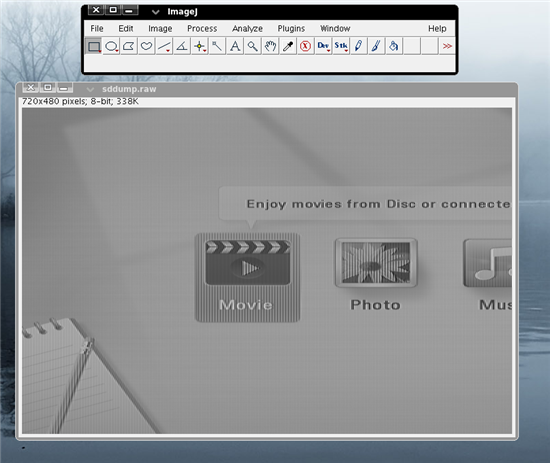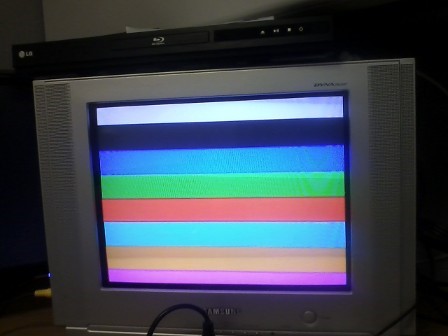Hi ,
I am working on DM8148 EVM board .I am using latest EZSDK 5.04 .
As per the OMX Release notes ,its mentioned that SD display is supported . I am using the OMX capture_encode application to capture 1080P component video ,scale it down to SD resolution NTSC (720 x 480 ) and display the composite video .
I am scaling the component video 1080P to SD (720 x480) using DEI component and giving it to the VFDC component .
In the SetDisplayParams() function ,I have made the changes
driverId.nDrvInstID = OMX_VIDEO_DISPLAY_ID_SD0;
driverId.eDispVencMode = OMX_DC_MODE_NTSC;
I have gone through the OMX display example and made relevant changes for SD display .
The problem is that ,composite display is not proper ,color component is missing . Its a monochrome display filled with lot of noise at the edges .
It seems to be the video is not scaled to the resolution 720x480 ,DEI component can do the scaling ,but in this case i don't see the video scaled .
Can anyone help me for SD display in EZSDK 5_04 ?am I missing out any step ?any help is appreciated .
Thanks,
Siva .
-
Ask a related question
What is a related question?A related question is a question created from another question. When the related question is created, it will be automatically linked to the original question.



